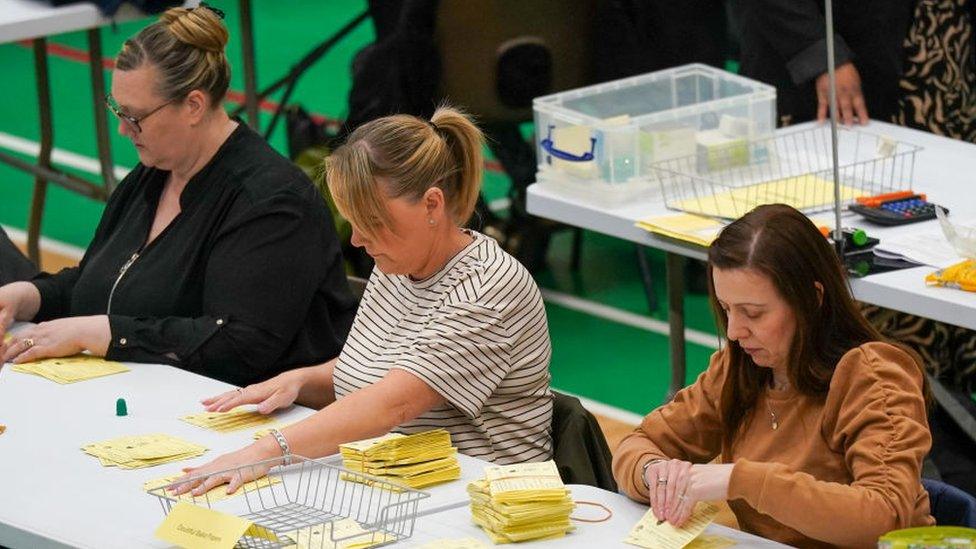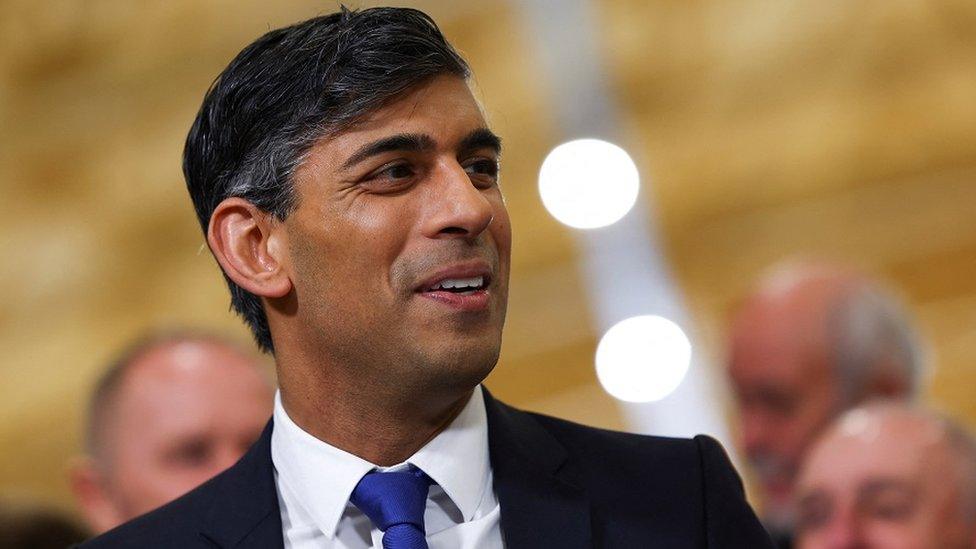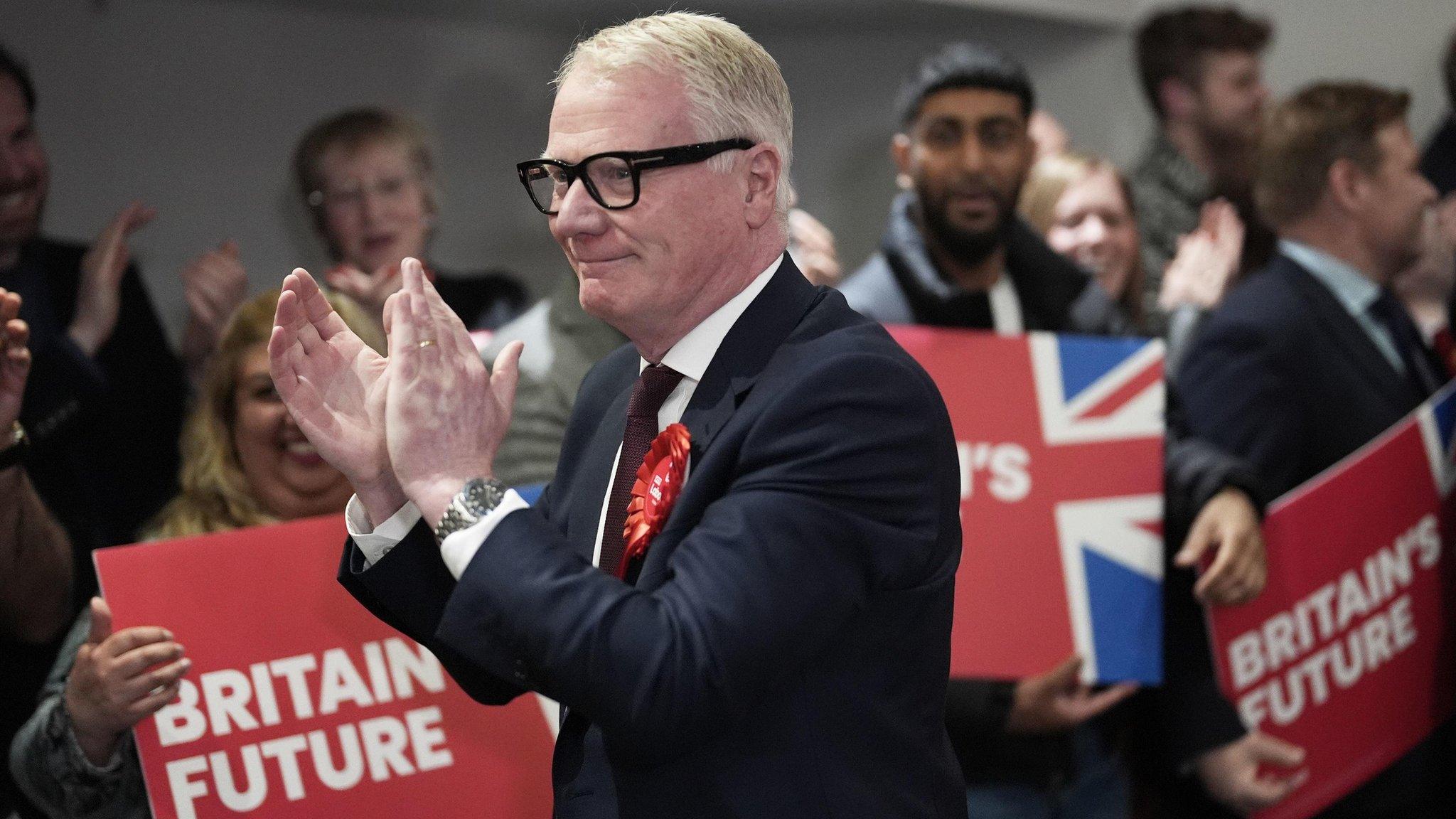Sir John Curtice: Do local election results point to a hung Parliament?
- Published
- comments

We perhaps should not be surprised that the prime minister has seized upon an extrapolation of Thursday's local election results that pointed to the prospect that the general election could result in a hung parliament in which Labour would be the largest party.
Such a scenario, he argued, would mean that Sir Keir Starmer would be "propped up in Downing Street" by the SNP, the Liberal Democrats, and the Greens.
Many Conservative MPs (and indeed Labour ones too) believe that a poster their party ran in the 2015 election, when the polls were pointing to a hung parliament, showing the then Labour leader, Ed Miliband, in the pocket of the former SNP leader, Alex Salmond, played a key role in delivering the Conservatives a surprise overall majority.
Whether or not that is what happened is not easy for analysts to say. However, British Election Study data collected at the time did not show any marked swing away from Labour among those who came to believe that Mr Miliband would be willing to do a deal with the SNP.
But, in any event, how realistic is it to use the share of the vote won by the parties in local elections to anticipate what might happen in an immediate general election? There are certainly two potential difficulties.
Although the ups and downs in party performance in local elections often run in parallel with the rises and falls in party support in the polls, some people (around one in five) vote differently in local elections than they would in a general election.
As a result the divergence between the level of support parties win in a local election and how well they would perform in a general election has become more marked.
Nowadays the Liberal Democrats consistently outperform their national standing in the local ballot boxes. The same has also come to be true of the Greens, while independent candidates have also enjoyed some notable success in recent years. Labour, in contrast, often do less well in local elections.
Meanwhile, the party political battle in Scotland is now very different from that in England - and the outcome of the current battle north of the border between Labour and the SNP could be crucial to the result of the next election. English local elections do not tell us much about what will happen north of the border.
These developments have made discerning the implications of local elections for the outcome of a general election more difficult.
At the same time, there are two particular features of the results of this year's local elections that make it especially difficult.
First, the polls suggest that more people who voted Conservative in 2019 have now switched to Reform than to Labour. But Reform were only on the ballot paper in one in six council wards. So, it may well be the case that people who would vote Reform if there had been a Reform candidate locally stuck with the Tories instead.
Certainly, Conservative support fell more heavily where Reform did stand. In the BBC's sample of key wards the party's support fell by 19 points in these wards - compared with 11 points in wards where Reform did not stand. Labour, in contrast, did rather better where Reform stood.
That 19-point drop matches the 19-point fall in the average level of Conservative support in the polls since May 2021. That figure may represent a better guide to the Conservatives' immediate prospects in a general election.
Second, the local election results confirm the message from last year's contests that the geography of party support has changed to the Conservatives' disadvantage.
The party's support fell more heavily in wards it was trying to defend.
At the same time, some voters seemingly voted for whichever party was best placed to defeat the Conservatives locally. Labour's support increased most (at the expense of the Liberal Democrats) in wards where they started off second to the Conservatives, while the Liberal Democrats advanced most (and Labour did less well) in wards where were the principal challengers locally.
Indeed, it is these two patterns that help explain why the Conservative Party lost nearly one in two of the council seats it was trying to defend. Conservative MPs would be unwise to assume that the same fate could not also befall them.
Sir John Curtice is Professor of Politics, University of Strathclyde, and Senior Fellow, National Centre for Social Research and 'The UK in a Changing Europe'. He is also co-host of the Trendy podcast.
Related topics
- Published6 May 2024

- Published4 May 2024

- Published4 May 2024
